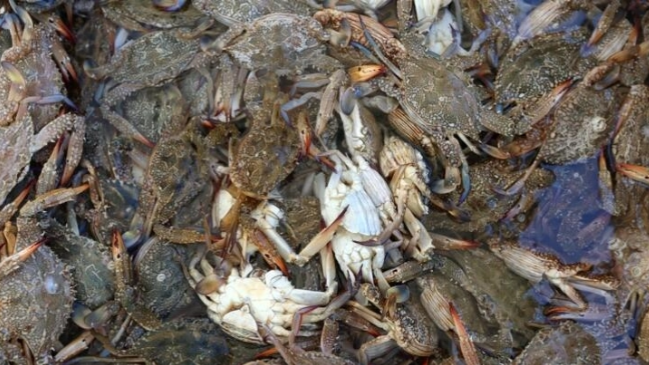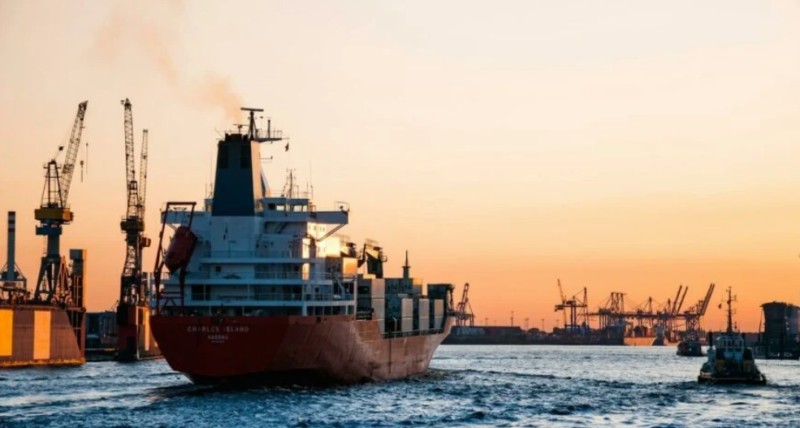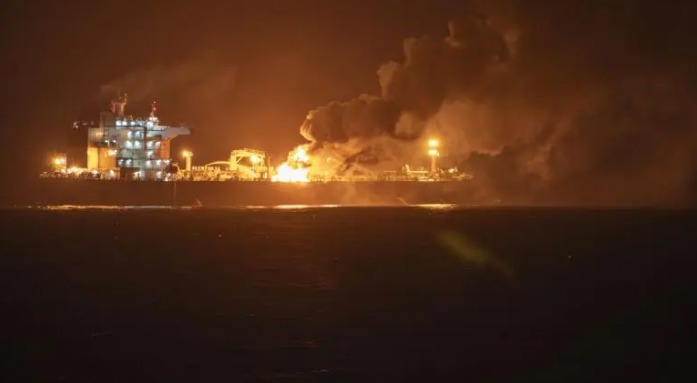The blue crab, an invasive species that has spread since 2015, was initially despised by fishermen due to its destructive impact on fishing nets and marine life. However, it is now dubbed « blue gold, » as some have started catching and selling it to export factories for consumption abroad. While the industry is still being organized and some fishermen have yet to see significant benefits, the economic potential is undeniable.
From Our Correspondent in Tunis,
At the Radès fishing port in the southern suburbs of Tunis, fishermen are busy separating schools of sardines caught in their nets. For many, like Saïd Hassan, the Portunus pelagicus, or blue crab, is still considered a scourge: « They destroy our nets. Sometimes, we go out to sea and come back with a net worth more than 2,000 dinars (592 euros) completely destroyed. How are we supposed to work after that? »
He knows that this crab has become an economic opportunity in southern and eastern Tunisia, where it has proliferated since 2014. This shift occurred after several foreign companies set up operations to export the crab. But in Radès, investments have been slow to materialize. « There’s no real solution at the moment. We can’t sell a kilo for more than 3 or 4 dinars, so even if we bring in 20 kilos, it’s much less profitable than other fish. »
At the Interprofessional Group of Fishery Products, Karim Hammami is responsible for supporting the sector and its development. He explains how Tunisia has managed to create a supply chain around this species, particularly in southern Tunisia: « We took the initiative to innovate and design selective fishing traps, small cages where the crab enters through a door and can’t escape, with bait inside. »
Enhancing the Sector
Today, the blue crab represents nearly 25% of the country’s fish exports, according to a report by the World Wildlife Fund. It generates nearly 50 million dinars (approximately 15 million euros) for Tunisia, but this economy still needs further structuring. « We hope that international investors will establish themselves in Tunisia and have a strategic vision for the next ten or twenty years. »
Another priority is to enhance the sector with a Tunisian certification. At La Goulette beach, Omar Lasram, an entrepreneur and producer of boutargue, has begun developing a plan to make the blue crab a local specialty: « To bring it to the market in proper form and high quality, we needed to certify it. A label for artisanal fishing means traceability, hygiene guarantees, and more. »
Omar is still trying to convince authorities of his approach, which could also prevent fishermen from having to sell their catch, including blue crabs, at low prices to middlemen.
Source: Reportage Afrique




